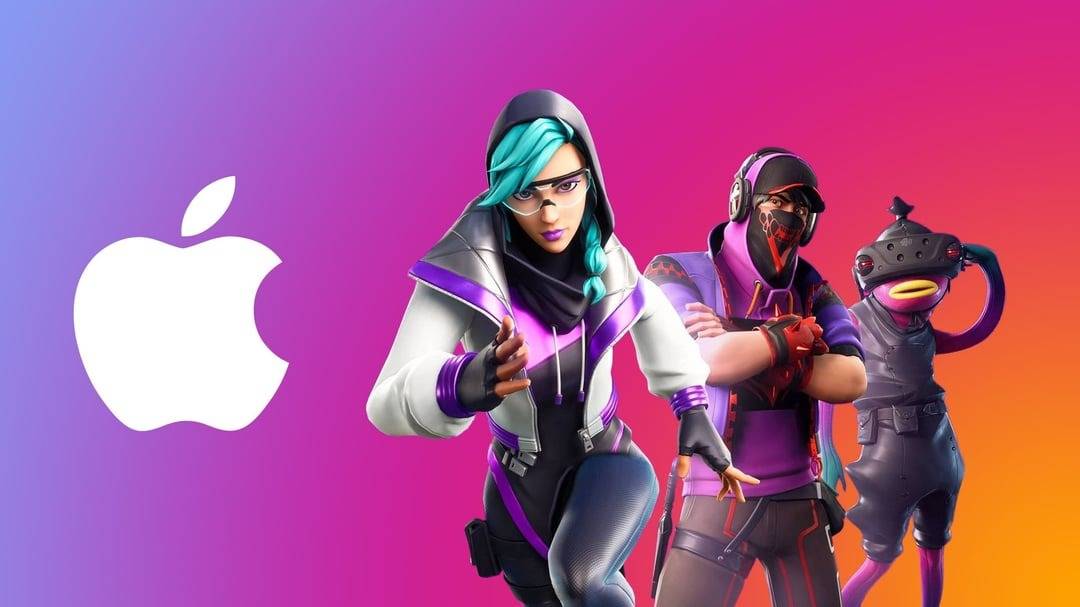A Trojan Horse of Fun: Why Fortnite’s New Mobile Mode is a Masterstroke for iPhone, and a Disaster for Apple
Popular Now
 Sonic the Hedgehog™ Classic
Sonic the Hedgehog™ Classic
 Rust
Rust
 Warframe
Warframe
 Gacha Club
Gacha Club
 Minecraft
Minecraft
 Garena Free Fire: Kalahari
Garena Free Fire: Kalahari
 Geometry Dash
Geometry Dash
 Schedule I
Schedule I
 Auto X Drift Racing 3
Auto X Drift Racing 3
 Valorant
Valorant

On October 1, 2025, a new era for mobile gaming began, but it was not the one Apple had envisioned. After a long, bitter legal battle, Epic Games’ Fortnite is finally back on the iPhone, but not through the App Store. Instead, it is available as a direct download through the European Union’s new Digital Markets Act (DMA), a landmark piece of legislation that forces tech giants to open their ecosystems to third-party developers. And to celebrate, Epic has released a new, mobile-exclusive mode called “Fortnite Zero,” which is a perfect, streamlined version of the game that is designed for a touch screen. The mode is a masterstroke of design, a brilliant, high-stakes gamble that has already become a massive success. But for Apple, this is not a win; it is a disaster. “Fortnite Zero” is not just a new game mode; it is a Trojan horse of fun, a direct-to-consumer product that is designed to lure players away from the App Store and into Epic’s own, more profitable, ecosystem. The game’s release is a direct challenge to Apple’s walled garden, and it’s a powerful statement that Epic is not just back; it is here to change the game entirely.
The new “Fortnite Zero” mode is a brilliant piece of mobile-first design. It strips the game down to its core essentials, with a simplified control scheme, a faster gameplay loop, and a focus on a more casual, battle-royale-lite experience. The game’s new “auto-build” system is a key part of this, as it allows players to build a basic fort with a single button press, which removes the most complex and frustrating part of the game for many new players. The game’s new “Fast-Forward” mode, which speeds up the early game and gets players into the action faster, is another welcome addition that is perfect for a mobile audience. The game’s new monetization strategy, which focuses on a simplified, direct-to-consumer store, is also a welcome change that has been praised by players for its transparency and its lower prices. But for Apple, every one of these changes is a problem, a direct attack on its core business model.
 The Four Disasters for Apple: A Walled Garden Under Siege
The Four Disasters for Apple: A Walled Garden Under Siege
The release of “Fortnite Zero” is not a small blip on Apple’s radar; it is a direct and powerful threat to its business. Here’s why the game is a disaster for the tech giant.
- The End of the App Store Monopoly: The most significant consequence of the game’s release is that it is the first major, high-profile game to be released on the iPhone without the App Store. This is a massive victory for Epic and a powerful precedent for other developers. The fact that a game as big as Fortnite can now be downloaded directly from a third party is a clear sign that the App Store’s monopoly on the iPhone is over. This is a huge blow to Apple’s business, which relies on a 30% commission on every transaction that is made on its platform.
- A Direct-to-Consumer Model: “Fortnite Zero” is not just a game; it is a direct-to-consumer product that is designed to lure players into Epic’s ecosystem. The game’s new store, with its lower prices and its direct-to-Epic payment system, is a brilliant way to bypass Apple’s commission. Epic is not just selling a game; it is selling a platform, a new way for players to consume content and to spend money without having to go through Apple. This is a massive threat to Apple’s business, which relies on a constant stream of in-app purchases.
- A Powerful Case for the Digital Markets Act: The success of “Fortnite Zero” is a powerful validation of the EU’s Digital Markets Act. The game’s release is a clear example of how the new law can benefit consumers and developers by giving them more choice and more freedom. This is a huge problem for Apple, which has been fighting this kind of legislation for years. The success of Fortnite is a clear sign that the company’s anti-competitive practices are no longer tenable in a world that is moving towards a more open, and more fair, marketplace.
- The Narrative of “Corporate Greed”: The entire legal and public relations battle has been a disaster for Apple. The company’s long and bitter fight with Epic has painted it as a greedy, anti-consumer corporation that is more interested in its bottom line than in the health of the gaming industry. The release of “Fortnite Zero,” with its lower prices and its focus on a more fair, direct-to-consumer model, is a powerful counterpoint to Apple’s narrative. Epic is not just a developer; it is a hero, a champion of a more open and fair marketplace, and that is a narrative that Apple will have a hard time fighting.
 A News and Business Perspective: The War Has Just Begun
A News and Business Perspective: The War Has Just Begun
From a news and industry perspective, the return of Fortnite to the iPhone is a massive, game-changing event. It is not just a new game; it is a new paradigm for mobile gaming. The game’s success is a clear sign that the App Store’s monopoly is over, and that a new era of open, and more fair, competition is on the horizon. The game’s “Zero” mode is a brilliant, beautifully designed product that is a perfect fit for a mobile audience. But for Apple, this is not a win; it is a massive, existential threat to its core business model. The war between Epic and Apple is not over; it has just begun, and the new battleground is the battlefield of consumer choice. The success of Fortnite‘s new mode is a clear sign that, for the first time in a very long time, Apple is no longer in control, and that is a truly terrifying thought for a company that has, for so long, been defined by its unwavering control over its ecosystem.









